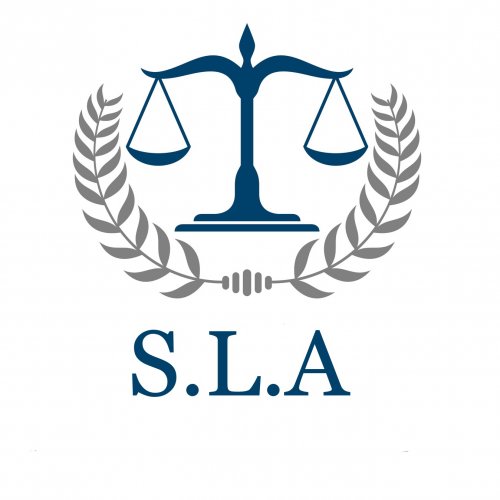Best Landlord & Tenant Lawyers in Kasur
Share your needs with us, get contacted by law firms.
Free. Takes 2 min.
Free Guide to Hiring a Real Estate Lawyer
List of the best lawyers in Kasur, Pakistan
About Landlord & Tenant Law in Kasur, Pakistan:
Landlord and Tenant law in Kasur, Pakistan, like the rest of the country, is primarily regulated under the Rent Restriction Ordinance, 1965. This province-specific legislation focuses on the relationship between landlords and tenants, outlining rights and obligations of both parties. The governing legislation controls rental agreements, eviction processes, rental hike disputes, and the maintenance and improvement of rented premises. It is important for both landlords and tenants to be aware of their rights and responsibilities under this law to prevent violations and protect their rights.
Why You May Need a Lawyer:
There can be many situations in landlord and tenant dynamics that may require legal help. These include drafting a lease agreement, understanding your rights and obligations under the law, dispute resolution over rental increases or property damage, eviction proceedings, and legal advice or representation in court cases related to rental disputes. A legal expert can help you navigate the complexities of rental law and ensure that your rights are protected, whether you are a landlord or a tenant.
Local Laws Overview:
The primary provisions of the Rent Restriction Ordinance, 1965, that are relevant to landlords and tenants in Kasur, Pakistan, involve the control of rent, prevention of unreasonable eviction, and dispute resolution. The law outlines the rules for increasing rent, renovating rented properties, and resolving disagreements between parties. It also limits the grounds on which a landlord may evict a tenant. The law stipulates a fair rental price, which is regulated by the Rent Controller appointed by the government.
Frequently Asked Questions:
How does a landlord legally raise the rent?
The Rent Restriction Ordinance controls rent increases. Any increase must be reasonable and in accordance with the prevailing rates of the area. The landlord must also give a notice of at least one month to the tenant.
What are the grounds for eviction?
Eviction is permissible under certain conditions, such as violation of the lease agreement, non-payment of rent, and use of the property for immoral or illegal purposes. However, the landlord must apply to the Rent Controller who determines if the eviction is justified.
What rights does a tenant have?
A tenant has the right to occupy the property peacefully, receive a receipt for rent paid, be informed in advance about any rent increase, and to apply to the Rent Controller if they feel their rent is excessively high.
What responsibilities does a landlord have?
A landlord has the responsibility to ensure the property is reasonably habitable, not disrupt the tenants' peaceful enjoyment of the property, provide receipts for rent, and follow legal procedures for eviction.
Can a tenant make changes to the property?
A tenant may only make changes to the property with the landlord's permission, and may be required to return the property to its original state at their own cost when the tenancy ends.
Additional Resources:
The Punjab Land Revenue Act, Pakistan Tenancy Act, and the Punjab Rented Premises Act are good sources of information about landlord-tenant laws. For legal advice or representation, residents can consult with lawyers who specialize in property law. District Courts and Rent Controllers can assist in resolving disputes relating to rent control and eviction.
Next Steps:
If you need legal assistance in Landlord & Tenant matters in Kasur, Pakistan, it's advisable to initially consult with a legal expert who can guide you through the process. Prepare all relevant documents such as the lease agreement, payment receipts, or evidence of dispute. Stay informed about your rights and obligations under the law to ensure a smooth and equitable landlord-tenant relationship.
Lawzana helps you find the best lawyers and law firms in Kasur through a curated and pre-screened list of qualified legal professionals. Our platform offers rankings and detailed profiles of attorneys and law firms, allowing you to compare based on practice areas, including Landlord & Tenant, experience, and client feedback.
Each profile includes a description of the firm's areas of practice, client reviews, team members and partners, year of establishment, spoken languages, office locations, contact information, social media presence, and any published articles or resources. Most firms on our platform speak English and are experienced in both local and international legal matters.
Get a quote from top-rated law firms in Kasur, Pakistan — quickly, securely, and without unnecessary hassle.
Disclaimer:
The information provided on this page is for general informational purposes only and does not constitute legal advice. While we strive to ensure the accuracy and relevance of the content, legal information may change over time, and interpretations of the law can vary. You should always consult with a qualified legal professional for advice specific to your situation.
We disclaim all liability for actions taken or not taken based on the content of this page. If you believe any information is incorrect or outdated, please contact us, and we will review and update it where appropriate.








